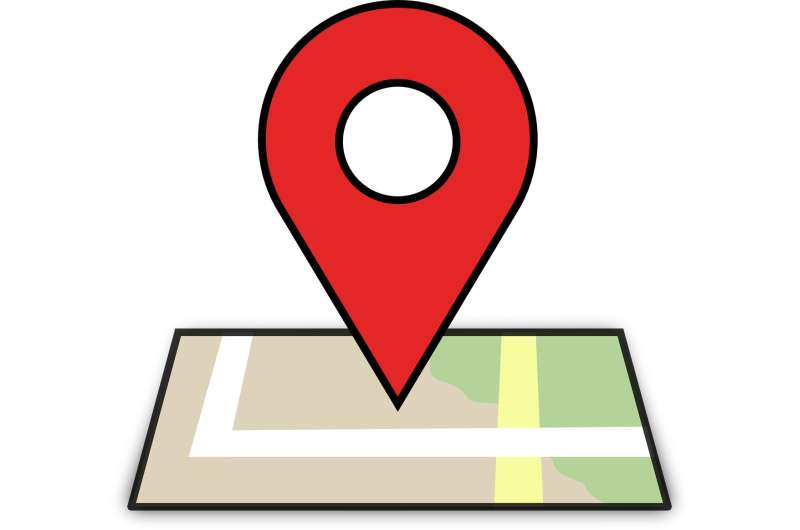Credit: CC0 Public Domain
The U.S. Justice Department is investigating Google's dominance in mapping, reviving a thread of its long-running antitrust investigation into the search giant, according to three people familiar with the probe.
Department lawyers have been seeking information and reinterviewing potential witnesses, the people said, speaking anonymously to discuss a pending investigation. The probe is focused on how Alphabet Inc.'s Google bundles its services, and could result in a new antitrust complaint, they said.
The development shows the Justice Department is continuing to scrutinize some of Google's most popular products, even after filing two major antitrust suits against the company.
Google's terms of service require developers to use its maps and search products together. The limitations prevent companies from using Google Places data—which offer detailed information, photos and reviews of specific establishments—on rival mapping services.
Forcing companies to use one product in order to gain access to a more popular one, known as bundling, can violate antitrust law.
Google said the restrictions ensure a good user experience, and that some third parties from which it licenses map data restrict how it is used.
"Developers choose to use Google Maps Platform out of many options because they recognize it provides helpful, high-quality information," Google spokesperson Peter Schottenfels said. "They are also free to use other mapping services in addition to Google Maps Platform—and many do."
Rivals have complained the restrictions could impair innovation in a number of emerging fields, such as drones, delivery and logistics, as well as electric and autonomous vehicles. At a February 2021 House hearing, Garmin Ltd. and closely held Mapbox Inc. raised concerns about Google's restrictions related to maps.
A Justice Department spokesperson declined to comment.
The Justice Department began investigating Google in 2019 and has filed two antitrust complaints—one focused on search and another on its advertising technology business. The agency sought information from the company related to mapping as part of the search case, but ultimately opted to file a narrow antitrust complaint that focuses on Google's contracts with browsers and smartphone makers that require its search engine to be set as the default.
State attorneys general conducted their own investigations and filed three separate complaints against Google related to search, advertising technology and the tech giant's control over apps downloaded on Android smartphones and devices.
The state search case—led by Colorado and Nebraska—was broader than the one filed by the Justice Department and included some allegations related to mapping and Google's bundling of products to carmakers.
Germany's antitrust authority opened an investigation into Google's map restrictions last year.
Politico earlier reported on the revived probe.
2023 Bloomberg News.
Distributed by Tribune Content Agency, LLC.
























